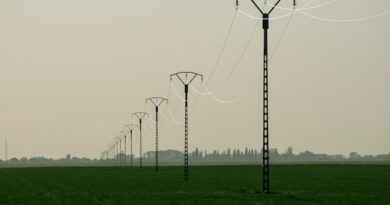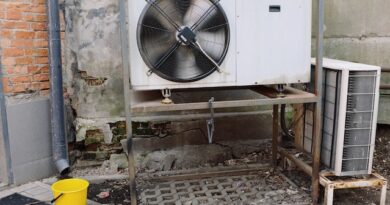Beyond the Surface: Unveiling the Hidden Dangers in Sonipat’s Electrical Safety Audits
Introduction
Sonipat, a bustling city known for its industrial growth and infrastructure development, is also home to hidden dangers lurking within its electrical systems. Electrical safety audits play a crucial role in identifying potential hazards and ensuring the well-being of individuals and properties. In this article, we will delve into the significance of electrical safety audits in Sonipat, uncover common issues discovered during these audits, explore the consequences of neglecting electrical safety, and discuss measures to enhance electrical safety in the city.
Understanding Electrical Safety Audits
Electrical safety audits are comprehensive assessments conducted by professionals to evaluate the safety and compliance of electrical systems within a given area. These audits involve a thorough examination of electrical components, wiring, grounding systems, and other crucial elements to identify potential hazards and non-compliance with safety standards.
The Importance of Electrical Safety Audits
Electrical safety audits are vital for various reasons. Firstly, they help identify and mitigate potential fire hazards caused by faulty wiring, overloaded circuits, or inadequate maintenance. Secondly, these audits ensure compliance with local and national electrical safety regulations, reducing legal liabilities and penalties. Lastly, they safeguard the well-being of individuals by minimizing the risk of electrical shocks and accidents.
Common Issues Uncovered in Sonipat’s Electrical Safety Audits
During electrical safety audits in Sonipat, several common issues are frequently uncovered. Understanding these issues can shed light on the hidden dangers that exist within the city’s electrical systems.
4.1 Outdated Wiring Systems
Outdated wiring systems are a prevalent problem in Sonipat’s electrical infrastructure. Aging wires and cables may not be capable of handling modern electrical demands, leading to overheating, short circuits, and potential fire hazards. Electrical safety audits often reveal the need for rewiring and upgrading these systems to ensure safety and reliability.
4.2 Overloaded Circuits
Another issue commonly discovered during safety audits is overloaded circuits. Overloading occurs when electrical circuits are burdened with excessive power demand, surpassing their intended capacity. This can lead to overheating, tripped breakers, and electrical failures. Safety audits highlight the importance of load balancing and proper circuit design to prevent such hazards.
4.3 Lack of Proper Grounding
Improper or inadequate grounding poses significant risks in Sonipat’s electrical systems. In the absence of proper grounding, electrical faults and surges can travel through equipment and structures, endangering individuals and causing damage. Audits emphasize the necessity of establishing effective grounding systems to protect against electrical faults and ensure the safe dissipation of excess current.
4.4 Inadequate Electrical Panel Maintenance
Electrical panel maintenance is often neglected, resulting in potential safety hazards. Safety audits frequently reveal issues such as loose connections, outdated circuit breakers, and inadequate labeling within electrical panels. Regular maintenance, including tightening connections, updating breakers, and proper labeling, is essential to prevent electrical mishaps.
The Consequences of Neglecting Electrical Safety
Neglecting electrical safety can have severe consequences for both individuals and businesses in Sonipat. Electrical accidents can result in injuries, property damage, and even fatalities. Additionally, non-compliance with safety regulations can lead to legal consequences, including fines and penalties. It is crucial to prioritize electrical safety to avoid such detrimental outcomes.
Enhancing Electrical Safety in Sonipat
Improving electrical safety in Sonipat requires a proactive approach and the implementation of effective measures. Here are some key steps that can be taken:
6.1 Regular Maintenance and Inspections
Establishing a routine maintenance schedule and conducting regular inspections is essential to identify and rectify potential electrical hazards promptly. This includes checking wiring, grounding systems, electrical panels, and other critical components for any signs of wear, damage, or non-compliance.
6.2 Upgrading Wiring Systems
Investing in upgrading outdated wiring systems is crucial for ensuring electrical safety. This involves replacing old wires with new ones that meet modern standards, allowing for increased capacity, improved insulation, and enhanced overall safety.
6.3 Educating Employees and Residents
Creating awareness among employees and residents about electrical safety practices is paramount. Conducting training programs, sharing safety guidelines, and promoting responsible usage of electrical devices can significantly reduce the risks associated with electricity.
The Role of Professional Electrical Safety Auditors
Professional electrical safety auditors play a vital role in ensuring the effectiveness of electrical safety audits in Sonipat. Their expertise and experience enable them to thoroughly assess electrical systems, identify potential hazards, and provide actionable recommendations to improve safety standards. Engaging professional auditors helps businesses and individuals proactively address electrical safety concerns.
Conclusion
Electrical safety audits in Sonipat are essential for identifying hidden dangers within the city’s electrical systems. By conducting thorough inspections, addressing common issues, and implementing proactive measures, Sonipat can significantly enhance electrical safety and protect individuals, properties, and businesses from potential hazards. Prioritizing electrical safety is crucial for creating a secure environment and promoting the well-being of everyone in the city.
FAQs (Frequently Asked Questions)
Q1: How often should electrical safety audits be conducted in Sonipat? A: The frequency of electrical safety audits depends on various factors, including the size of the property, the complexity of the electrical system, and local regulations. It is recommended to consult with professional auditors to determine an appropriate audit schedule.
Q2: Can electrical safety audits prevent electrical fires? A: Yes, electrical safety audits play a significant role in preventing electrical fires. By identifying potential hazards, such as faulty wiring or overloaded circuits, audits enable timely corrective actions to be taken, reducing the risk of fire incidents.
Q3: Are electrical safety audits mandatory for businesses in Sonipat? A: While the specific regulations may vary, many jurisdictions require businesses to conduct regular electrical safety audits to ensure compliance with safety standards. It is essential to be aware of and adhere to the local legal requirements.
Q4: What should I do if an electrical safety issue is identified during an audit? A: If an electrical safety issue is identified during an audit, it is crucial to address it promptly. Engage a qualified electrician or electrical contractor to rectify the problem and ensure compliance with safety regulations.




